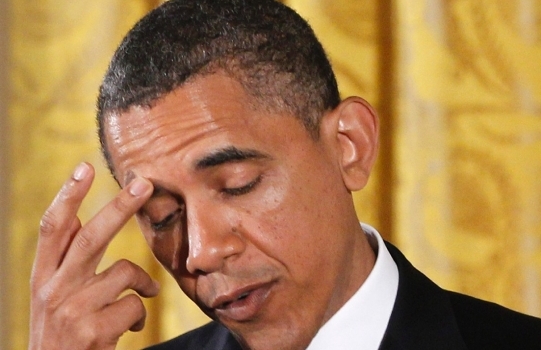The problem of Obama's skin color
- By Wei Hongxia
 0 Comment(s)
0 Comment(s) Print
Print E-mail China.org.cn, September 20, 2012
E-mail China.org.cn, September 20, 2012
Four years ago, when Obama was elected as the President of the United States, the world media all described him as "the first African-American President of the US" in their headlines. His presidency was considered to be history-making. Some people even held the optimistic view that the US had completely "terminated" racial prejudice and fulfilled Martin Luther King's dream. Obama's election to the presidency even kept the world proud of the US for a while.
|
|
|
The ongoing presidential race indicates that Obama's skin color has continued to pose challenges. |
Washington D.C. is a special place where various kinds of political figures gather. Quite a few American white people that I met referred to Obama as "my president," giving me a feeling that Obama holds a sublime position in the hearts of American people. Hearing an African-American president is addressed in such an honorable manner, I feel that skin color is not a problem in America any more.
However, the ongoing presidential race indicates that Obama's skin color has continued to pose challenges.
Some analysts said that a lot of white people voted for Obama four years ago in order to show their racial non-bias. This, however, was not due to the fulfillment of Dr. King's dream or American social realities, but driven by politics, they commented.
Politics are sentimentally biased. Four years ago, anyone in the conservative camp who opposed Obama was labeled a racist. Likewise, any liberal claiming that he or she did not like Obama could not avoid being accused of racism. In fact, there are some people who oppose Obama's policies and those who are biased against his skin color. Furthermore, some people even fear that Obama's skin color would "alter" American mainstream Anglo-Saxon culture. No doubt, this is the point of view of the far right.
Also duly notable is the fact that the Obama camp can attract votes by bragging about racial integration, while the Republicans can attack Obama for supporting preferential welfare policies for African-Americans. In a word, it is now absolutely impossible to drop the issue of race in the presidential election.
During the Nixon era, the "Southern Strategy" took advantage of American Southern white people's racism to attract votes. The racism still lingers in the South today. It is a good testament to this that Obama lost a whopping 38 percent to McCain among Southern white men in the 2008 presidential election. During the Reagan era, the racial term "welfare queen" was coined, profiling African-American women as freeloaders of government. Right now, Obama is facing attacks from the Republicans over welfare policies. He has been dubbed as the "food stamp president," suggesting that he provides preferential treatments to African-Americans to allow them to live off welfare instead of jobs. This strategy seems to revive Reagan's tactics. In fact, Obama, as the Democratic candidate and US president, has to carry out his party's creeds and represent the country's national interests. Although his presidency enhances the self-esteem of African-Americans, he does not directly represent interests of any African-American groups.
In this way, although white people and ethnic minority groups live peacefully on the surface in Obama Administration, the notion that Obama's election achieved true racial harmony in America is still a myth.
The author is now a visiting scholar with the Carnegie Endowment for International Peace. She is a columnist with China.org.cn. For more information please visit: http://www.formacion-profesional-a-distancia.com/opinion/weihongxia.htm
(This post was written in Chinese and translated by Pang Li)
Opinion articles reflect the views of their authors, not necessarily those of China.org.cn.






